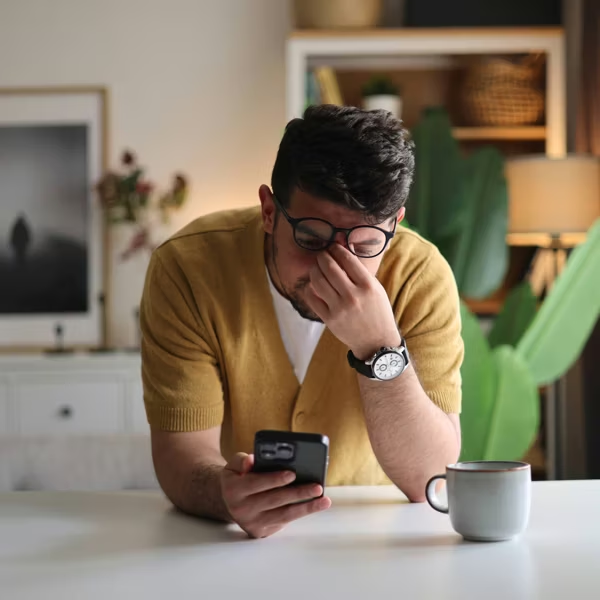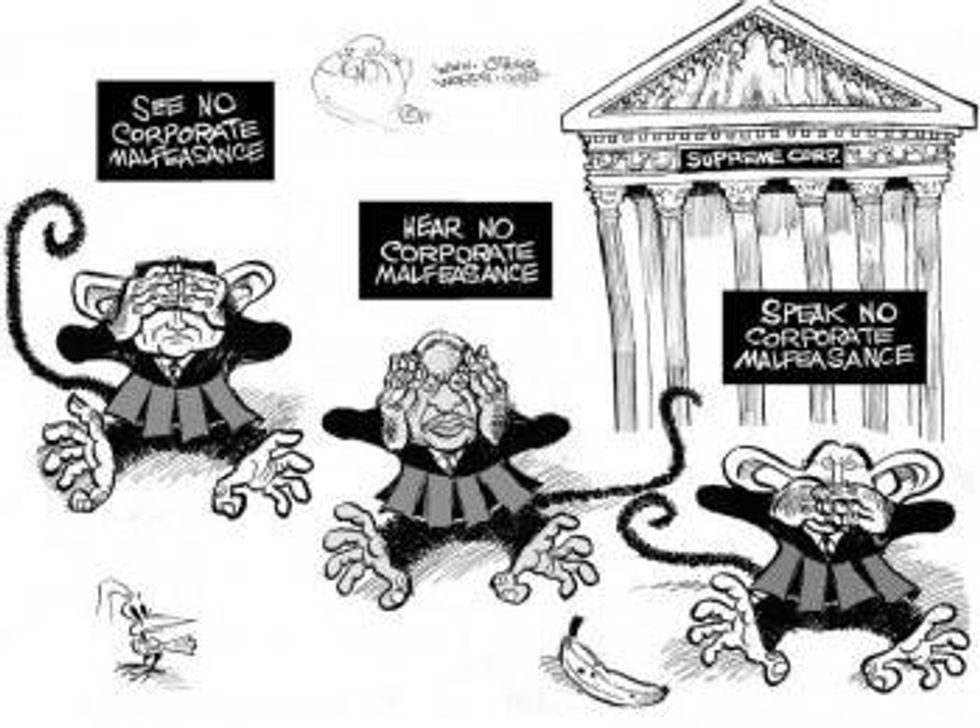Americans realize that our rights and liberties depend on having a system of justice that we can trust. We know we should be able to show up in court to contest anything from a parking ticket to felony and make our case -- whether we're rich or poor.
But there's one U.S. court where it's increasingly hard for individual Americans to have their voices heard. The Supreme Court -- our court of last resort -- is making it harder for individual citizens to hold the rich and powerful accountable.
In recent years, the high court has consistently twisted the law and Constitution to put giant corporations' profits over the rights of individual Americans. That means it's getting harder for citizens to seek justice when corporations stiff us.
In June, for instance, the Supreme Court ruled that more than a million women who had suffered wage discrimination as employees of Walmart couldn't join together to sue the company. Several women had filed a class action suit against the company on behalf of themselves and up to 1.5 million other women who faced similar treatment, seeking to pool their resources in order to go up against one of the most powerful corporations in the world. But the majority opinion ignored what the women had in common and focused instead on the differences bound to arise within a group that large, ruling that they couldn't go in it together to hold Walmart accountable. By sharply reducing the ability of employees to pool their resources, the court has made it easier for big employers to discriminate.
The Walmart case is only one example of the Supreme Court's growing tendency to side with the interests of big corporations over the rights of ordinary citizens. Earlier this year, the court ruled that Californians who had fallen prey to an alleged scam by their cell phone company couldn't join together to hold the company accountable. Because each customer was cheated out of a relatively small amount, few customers would go to the trouble of recovering their money. Many victims had not even noticed the relevant charge in their bill.
For these reasons, only a large class action lawsuit would serve to hold the company accountable. In another case, the court ruled that a financial firm accused of defrauding its investors couldn't be held liable because the firm had protected itself with a cleverly designed corporate structure. In doing so, the court both ignored the clear meaning of the law and essentially provided financial firms with an instruction manual on how to defraud their clients without being caught.
In the past year, the Supreme Court also handed two big victories to pharmaceutical companies. In one, it ruled that a state couldn't prohibit the sale or use of pharmacies' prescription data by drug companies without the prescribing doctor's authorization. In the other, the court let a pharmaceutical company off the hook for failing to warn about the dangerous side effects of a drug it was selling -- a failure that resulted in at least one patient developing a painful and incurable neurological disorder.
Of course, sometimes the law really is on the side of big business. Our justice system requires that big corporations get a fair hearing just as ordinary citizens do. But they don't deserve more of a voice than the rest of us. The Supreme Court, guided by a right-wing majority, has increasingly bought the convoluted arguments of moneyed corporations lock, stock, and barrel, while turning a blind eye to the law -- to say nothing of the impact on ordinary Americans. These decisions don't just hurt the individuals directly involved in them. They hurt us all, by limiting our rights and sending a signal to the wealthy and powerful that they can go ahead and abuse the rest of us without consequence.
Our founders wrote the Constitution to protect individuals against the whims of the powerful. But too often lately, the Supreme Court has twisted our laws to protect the powerful from being held accountable by individuals. Supreme Court justices and lower federal court judges must defend the Constitution, not twist it beyond recognition.




